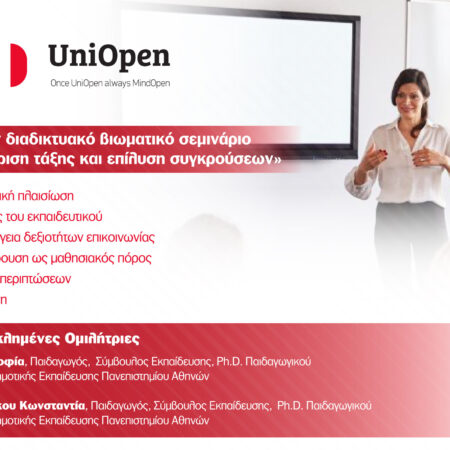The Courses
The undergraduate program in Banking and Insurance Sciences is structured according to the important and sensitive phase of the banking sector. The globalization processes of the world economic system, the resulting increase in the flexibility of the banking and economic system and the dominance of the financial dimension on the productive and commercial dimension have brought profound changes to the global economy, necessarily creating new professional profiles capable of interpreting and managing a constantly evolving economic reality, which is increasingly difficult to fit into predefined models. The curriculum in Banking and Insurance Sciences contributes to the acquisition of specialized knowledge and skills for the operation and structure of the financial markets and mainly to the deepening of the problematic management of the financial, banking and insurance intermediaries.
Objectives
Graduates in Banking and Insurance Sciences:
- have excellent knowledge and skills in the economic branches and have an adequate in-depth knowledge of mathematical statistics
- are able to analyze and address the problems of the financial and business systems of which they are the web
- Have the necessary skills to understand the evolution of the main economic and monetary variables
- Possess analysis models for interpreting and solving financial and management problems
- are familiar with the procedures of financial intermediaries and capital markets
- Have the necessary financial knowledge to evaluate either the investment and financing options or the ways in which they are made in direct or indirect financial circuits or through the use of the insurance sector
- are able to classify fiscal and credit developments in the correct macroeconomic framework, whether national or international
- can develop research in a statistical-economic context.
Teaching
The training program provides for:
- Teaching activities (video lessons, videoconferencing lessons, etc.)
- Interactive course activities (quiz, FAQ, web forum, wiki, etc.)
- Exercise and practical tests
- Participation in seminars conducted by qualified teachers and specialists in economic and legal subjects
- Acquiring language skills with in-depth English
- Preparation and drafting of a final report.
- Training periods in institutions and research institutes, in enterprises and government departments, in addition to the possibility of staying in other Italian and foreign universities, complete the training period.
Curriculum
| 1st year | Course | Credits |
| Economy and business management | 9 | |
| Statistics | 9 | |
| Microeconomics | 9 | |
| Economic history | 9 | |
| Mathematical methods | 6 | |
| Business Economy | 9 | |
| English language | 5 |
| Elective courses | |
| Sociology of economic and labor processes (management information) | 6 |
| From mass society to social capital | 6 |
| 2nd year | Course | Credits |
| Banking Law | 9 | |
| Accounting and business accounting | 6 | |
| Economy of financial intermediaries | 9 | |
| Commercial law | 9 | |
| Economic maths | 6 | |
| Financial analysis and business appraisal | 9 | |
| Macroeconomics | 9 |
| 3rd year | Course | Credits |
| Applied economics | 9 | |
| Economy of insurance companies and welfare enterprises | 9 | |
| Public Law Institutions | 6 | |
| Management of financial risks | 6 | |
| Financial science | 9 | |
| Computer and telematics skills | 2 | |
| Elective courses | 12 | |
| Training | 4 | |
| Final examination | 4 |
| Elective courses | |
| Economy, Law and Literature | 6 |
| Business communication | 6 |
| Public Procurement Law | 6 |
| Tax Law | 6 |
| Economics and management of real estate complexes | 6 |
| Property rights | 6 |
| Labor law | 6 |
| Governance of the European Union | 6 |
| Political economy | 6 |
| Business Organization | 6 |
| Economy of the company’s human capital | 6 |
| Budget analysis | 6 |
| Business strategies and spin-off | 6 |
| Banking governance | 6 |
Course Features
- Lectures 0
- Quizzes 0
- Duration 50 hours
- Skill level All levels
- Language English
- Students 0
- Certificate No
- Assessments Yes







